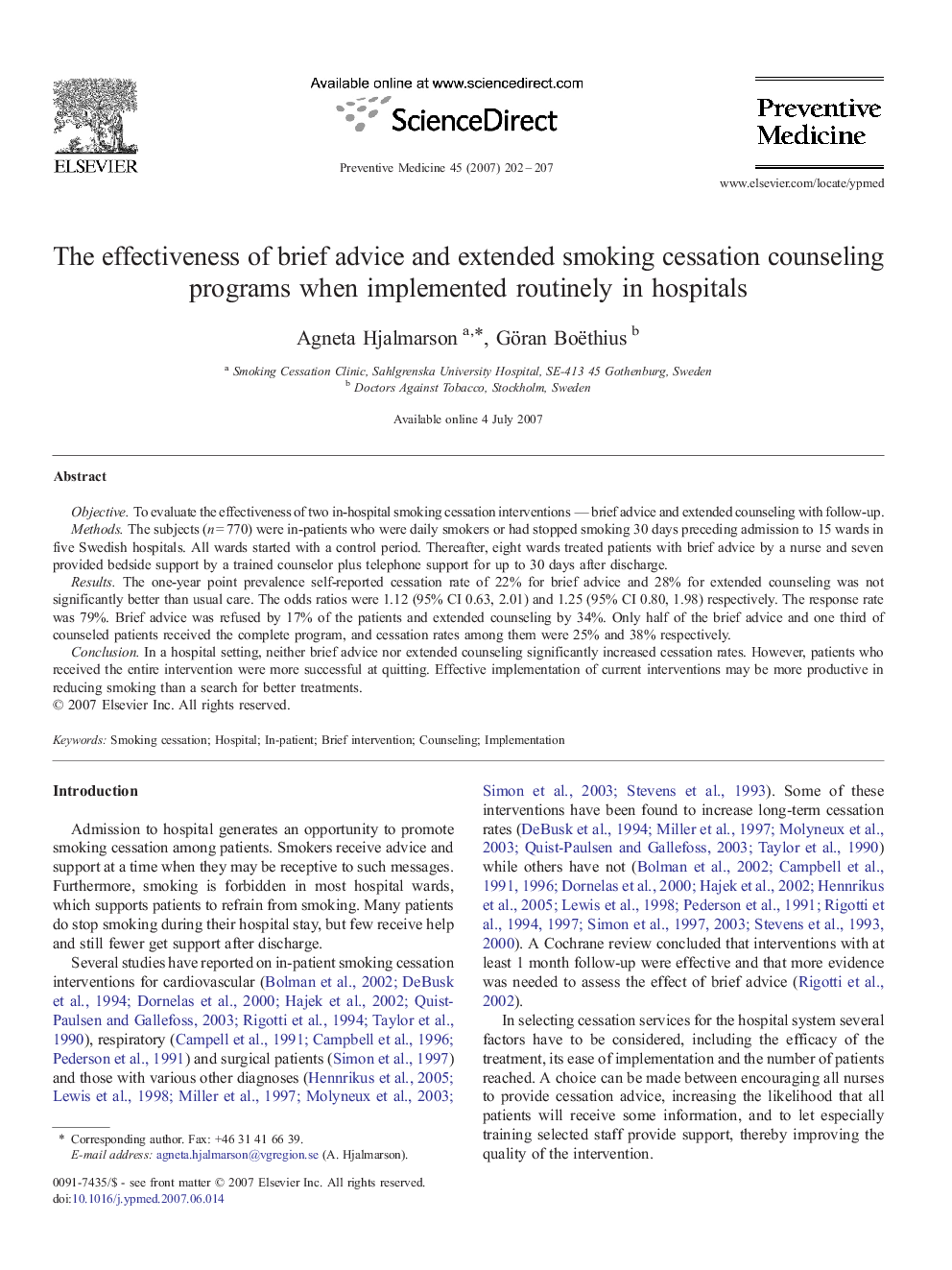| Article ID | Journal | Published Year | Pages | File Type |
|---|---|---|---|---|
| 3101963 | Preventive Medicine | 2007 | 6 Pages |
Objective.To evaluate the effectiveness of two in-hospital smoking cessation interventions — brief advice and extended counseling with follow-up.Methods.The subjects (n = 770) were in-patients who were daily smokers or had stopped smoking 30 days preceding admission to 15 wards in five Swedish hospitals. All wards started with a control period. Thereafter, eight wards treated patients with brief advice by a nurse and seven provided bedside support by a trained counselor plus telephone support for up to 30 days after discharge.Results.The one-year point prevalence self-reported cessation rate of 22% for brief advice and 28% for extended counseling was not significantly better than usual care. The odds ratios were 1.12 (95% CI 0.63, 2.01) and 1.25 (95% CI 0.80, 1.98) respectively. The response rate was 79%. Brief advice was refused by 17% of the patients and extended counseling by 34%. Only half of the brief advice and one third of counseled patients received the complete program, and cessation rates among them were 25% and 38% respectively.Conclusion.In a hospital setting, neither brief advice nor extended counseling significantly increased cessation rates. However, patients who received the entire intervention were more successful at quitting. Effective implementation of current interventions may be more productive in reducing smoking than a search for better treatments.
